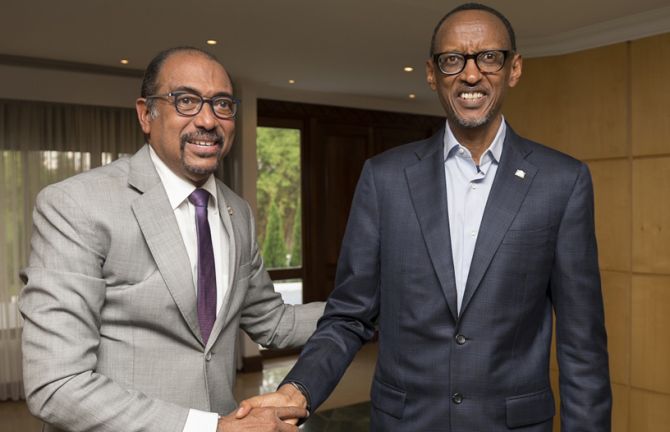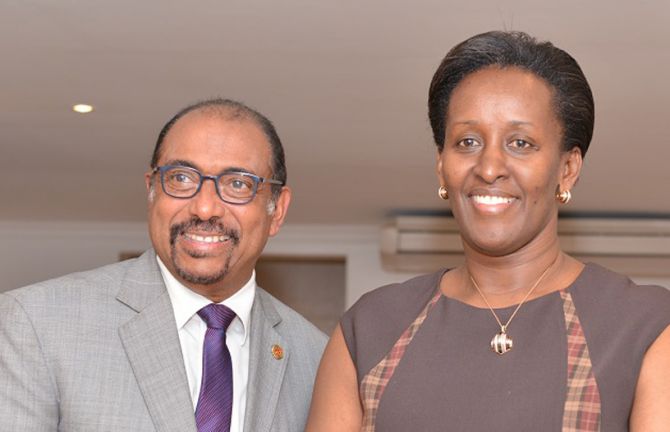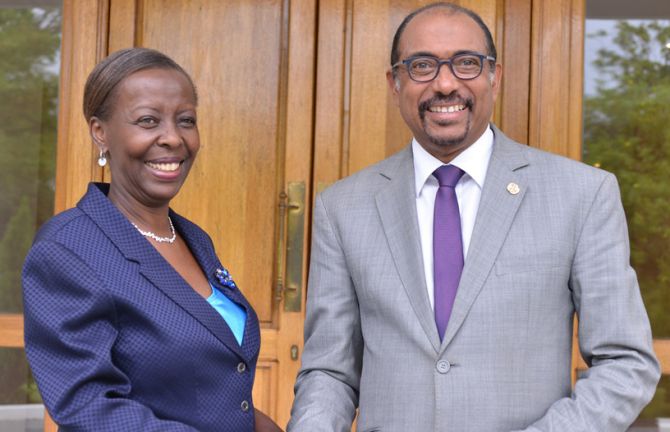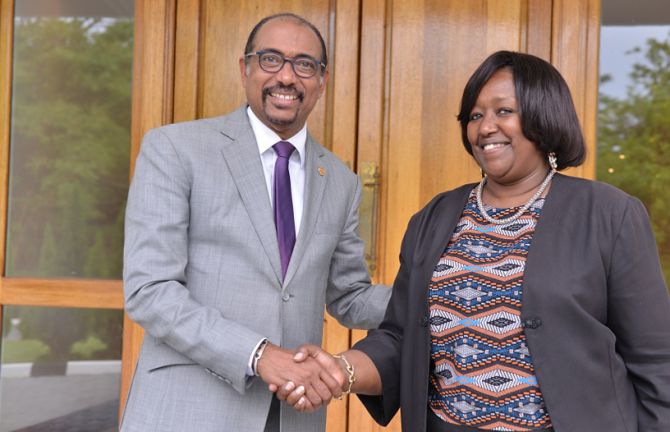




Update
Rwanda gets closer to having an AIDS-free generation
10 December 2015
10 December 2015 10 December 2015In 2014 in Rwanda, more than 95% of pregnant women living with HIV had access to antiretroviral medicines to prevent the transmission of HIV from mother to child. As a result, the country had fewer than 500 new infections among children last year, paving the way to achieving an AIDS-free generation. The incidence rate for HIV is estimated to be a stable and low 0.11%.
During a visit to Rwanda on 9 and 10 December, UNAIDS Executive Director Michel Sidibé celebrated the country’s achievements and praised President Paul Kagame on his government’s leadership in the continental AIDS response.
Mr Sidibé called on Rwanda to sustain the gains made in health and development and urged the country to keep moving towards sustainable financing for health and HIV.
He also met with the Minister of Health, the Minister of Foreign Affairs and Cooperation, the First Lady and civil society organizations. Mr Sidibé stressed the major role that civil society has to play in advocating for those being left behind in the AIDS response and in pushing for social justice and transformation. Civil society representatives highlighted that access to services for all, including key populations, has been ensured in Rwanda, although stigma and discrimination remain a challenge.
The importance of meaningful community engagement for health and development was further demonstrated during a visit to the Millennium Village Project in Mayange, 40 kilometres south of the capital. It is one of 14 clusters of Millennium Villages that operate across sub-Saharan Africa, serving the poorest and most remote communities in the region. Mayange has three health facilities: a health centre and two health posts.
Mr Sidibé visited the Mayange health centre, which uses an integrated approach to prevent new HIV infections and promote sexual and reproductive health services and family planning. No babies have been born with HIV in the Mayange health centre since 2013, showing that the elimination of mother-to-child transmission of HIV is within reach in Rwanda. Mr Sidibé congratulated the health centre and the local leaders, adding that change is possible with leadership, commitment and passion.
Mr Sidibé also participated in the signing ceremony of the Paris Declaration to Fast-Track the HIV response in cities, which took place at Kigali City Hall on 10 December. The Mayor of Kigali, Fidele Ndayisaba, committed to accelerate the response in the capital and to lead, guide and support other urban areas in doing so. The cities initiative will help translate commitments to Fast-Track the HIV response into targeted actions and rapid results through a focus on location and population.
Quotes
“I congratulate the President of Rwanda on his leadership and on championing a people-centred approach to health and development for everyone in Rwanda. Rwanda is on the Fast-Track to end the AIDS epidemic by 2030.”
“On our journey towards an HIV-free generation, we use evidence for a results-oriented approach and we bring services to those who are most in need. Rwanda is committed to accelerating the response to end AIDS.”
“AIDS is everyone’s business. It is everyone’s responsibility to act to end AIDS by 2030. The signing of the Paris Declaration is not just a ceremony, it is a signature for action, and we are all invited to take action.”
“As local leaders, we are committed to sustain the achievements and achieve more through cooperation, involvement and participation. When we have hope for the future, we invest in the future. Ending AIDS is possible; we have demonstrated it here.”



